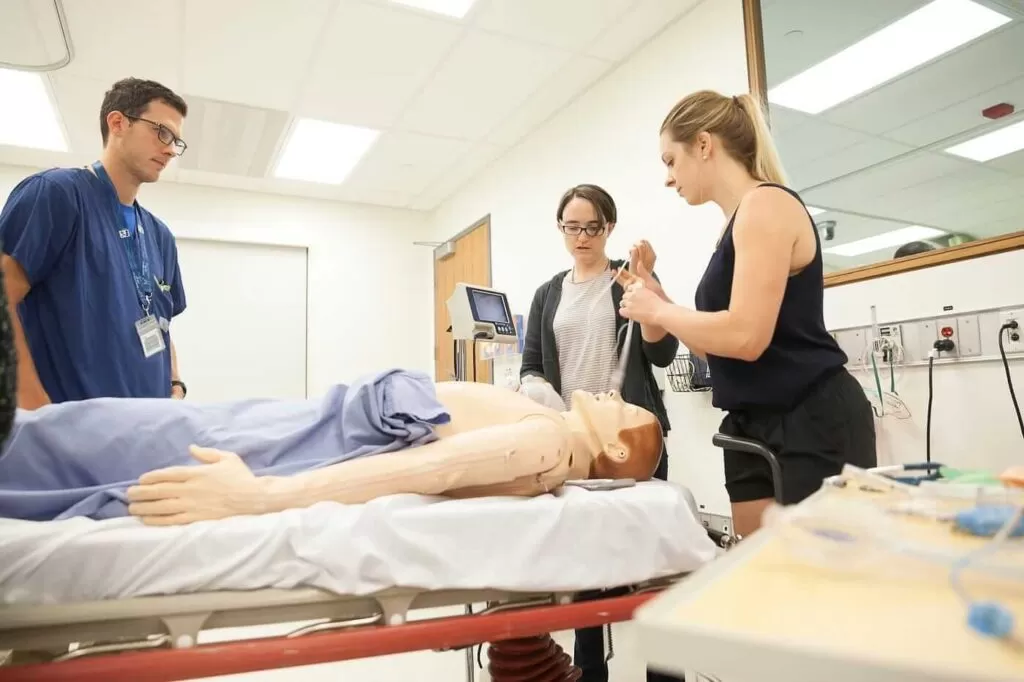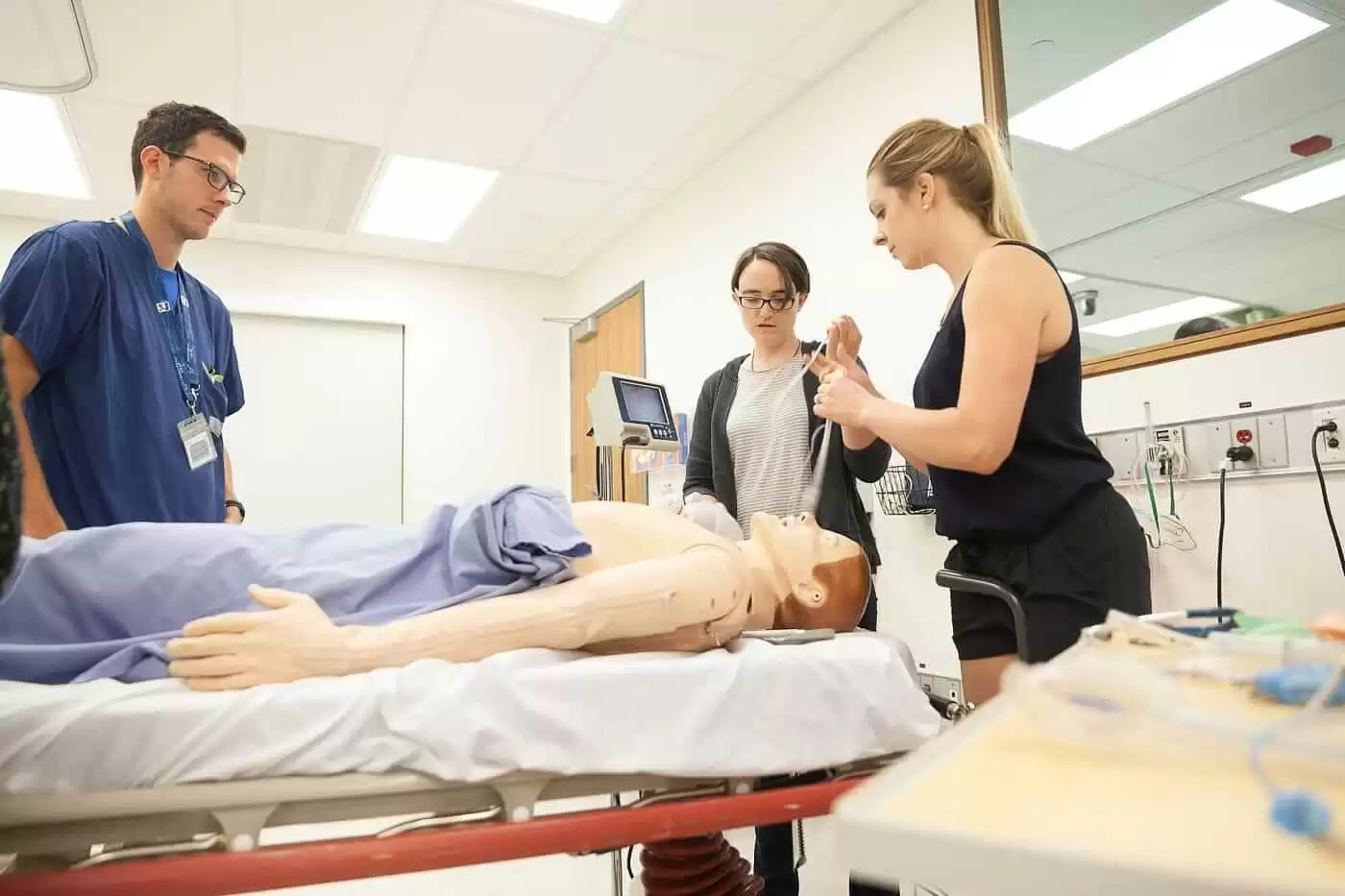The Role of Technology in Modern Healthcare
 Table of Contents
Table of Contents
- Introduction
- Telemedicine: Bridging the Gap
- Virtual Consultations
- Remote Monitoring
- Artificial Intelligence: Enhancing Diagnostics
- Predictive Analysis
- Image Recognition
- Electronic Health Records: Streamlining Information
- Accessibility and Data Sharing
- Improved Patient Care
- Robotics in Surgery: Precision and Accessibility
- Robotic-Assisted Surgery
- Training and Expertise
- Wearable Devices: Empowering Patients
- Monitoring Health Trends
- Promoting Healthy Lifestyles
- Telehealth in Mental Health: Breaking Barriers
- Remote Therapy Sessions
- Reducing Stigma
- Data Security and Privacy
- Protecting Patient Data
- Compliance and Regulations
- Challenges and Limitations
- Access Disparities
- Ethical Dilemmas
- Future Trends in Healthcare Technology
- Conclusion
- FAQs
Introduction
The landscape of healthcare is rapidly evolving, thanks to the integration of technology. In this digital era, the role of technology in modern healthcare is nothing short of transformative. From telemedicine to artificial intelligence, technology is enhancing patient care, improving diagnostics, and revolutionizing the way we approach healthcare. This article explores the significant impact of technology on the healthcare industry.
Telemedicine: Bridging the Gap
Virtual Consultations
Telemedicine has brought healthcare to our fingertips, offering virtual consultations with healthcare professionals. Patients can seek medical advice and treatment without leaving the comfort of their homes, making healthcare more accessible.
Remote Monitoring
Technology allows for remote monitoring of patients with chronic conditions. This has proven invaluable for tracking vital signs, medication adherence, and overall health, especially in times when in-person visits are limited.
Artificial Intelligence: Enhancing Diagnostics
Predictive Analysis
Artificial intelligence (AI) and machine learning are changing the game in diagnostics. AI can analyze vast amounts of patient data to identify trends, predict disease outcomes, and suggest treatment options.
Image Recognition
AI’s ability to interpret medical images, such as X-rays and MRIs, has enhanced the speed and accuracy of diagnosis. This can lead to faster intervention and improved patient outcomes.
Electronic Health Records: Streamlining Information
Accessibility and Data Sharing
Electronic health records (EHRs) enable healthcare providers to access patient information quickly and securely. They also facilitate seamless data sharing among different healthcare facilities, ensuring that patients receive comprehensive care.
Improved Patient Care
EHRs not only store patient data but also help manage medication lists, allergies, and treatment plans. This reduces errors, enhances patient safety, and improves the quality of care.
Robotics in Surgery: Precision and Accessibility
Robotic-Assisted Surgery
Robotic systems are assisting surgeons in performing intricate procedures with unparalleled precision. The minimally invasive approach reduces patient recovery time and discomfort.
Training and Expertise
Surgeons require specialized training to operate robotic systems effectively, ensuring that patients receive the highest quality care.
Wearable Devices: Empowering Patients
Monitoring Health Trends
Wearable devices, such as fitness trackers and smartwatches, empower individuals to monitor their health trends. This proactive approach encourages healthy lifestyles and early intervention.
Promoting Healthy Lifestyles
Wearables provide real-time data on physical activity, heart rate, and sleep patterns, motivating individuals to make positive lifestyle changes.
Telehealth in Mental Health: Breaking Barriers
Remote Therapy Sessions
Telehealth has expanded to include mental health services. Patients can access therapy and counseling remotely, breaking down barriers to care and reducing the stigma associated with seeking help.
Reducing Stigma
The privacy and convenience of remote mental health services encourage more individuals to seek treatment and support.
Data Security and Privacy
Protecting Patient Data
As technology advances, safeguarding patient data becomes paramount. Hospitals and healthcare providers must invest in robust security measures to protect sensitive information.
Compliance and Regulations
Compliance with healthcare data regulations, such as HIPAA, ensures that patient data is handled ethically and legally.
Challenges and Limitations
Access Disparities
Not all patients have equal access to technology or the internet, creating disparities in healthcare access. Bridging this digital divide is essential.
Ethical Dilemmas
The use of technology in healthcare also presents ethical challenges, such as the boundaries of AI decision-making and the potential for data misuse.
Future Trends in Healthcare Technology
The future of healthcare technology holds exciting possibilities, including more advanced AI applications, enhanced telemedicine capabilities, and breakthroughs in disease treatment and prevention.
Conclusion
The role of technology in modern healthcare is a dynamic and ever-evolving one. It has the power to improve patient care, increase accessibility, and save lives. As technology continues to advance, its impact on healthcare is poised to grow even further.
FAQs
- What is the primary benefit of telemedicine for patients? Telemedicine offers patients the convenience of virtual consultations and access to healthcare from the comfort of their homes.
- How does AI contribute to improved diagnostics in healthcare? AI can analyze patient data to predict disease outcomes, interpret medical images, and suggest treatment options, leading to faster and more accurate diagnoses.
- What is the role of electronic health records (EHRs) in patient care? EHRs improve patient care by providing quick access to medical information, reducing errors, and facilitating data sharing among healthcare providers.
- How do wearable devices promote healthy lifestyles? Wearables provide real-time health data, encouraging individuals to monitor their well-being and make positive lifestyle changes.
- What are the ethical challenges associated with technology in healthcare? Ethical dilemmas include AI decision-making boundaries and the responsible use of patient data, among other concerns.


